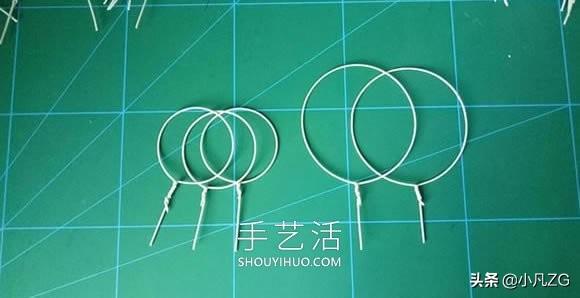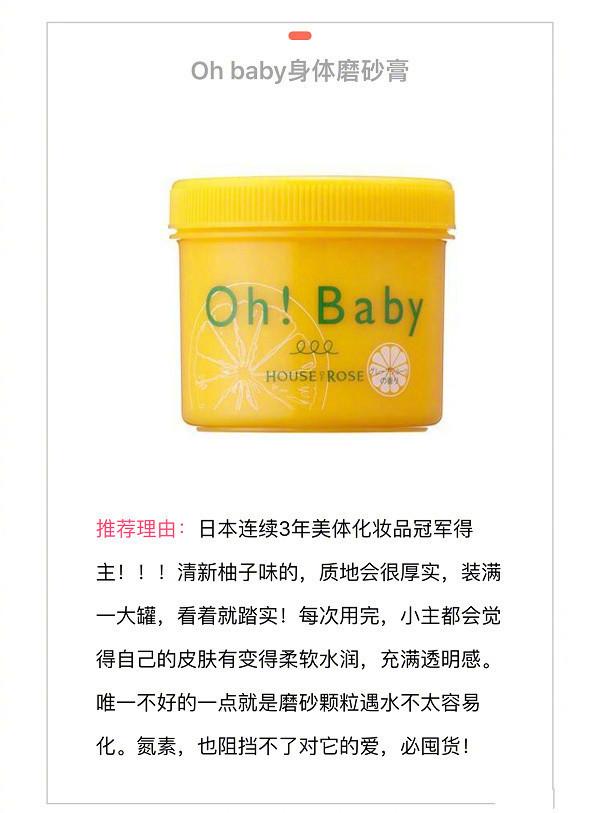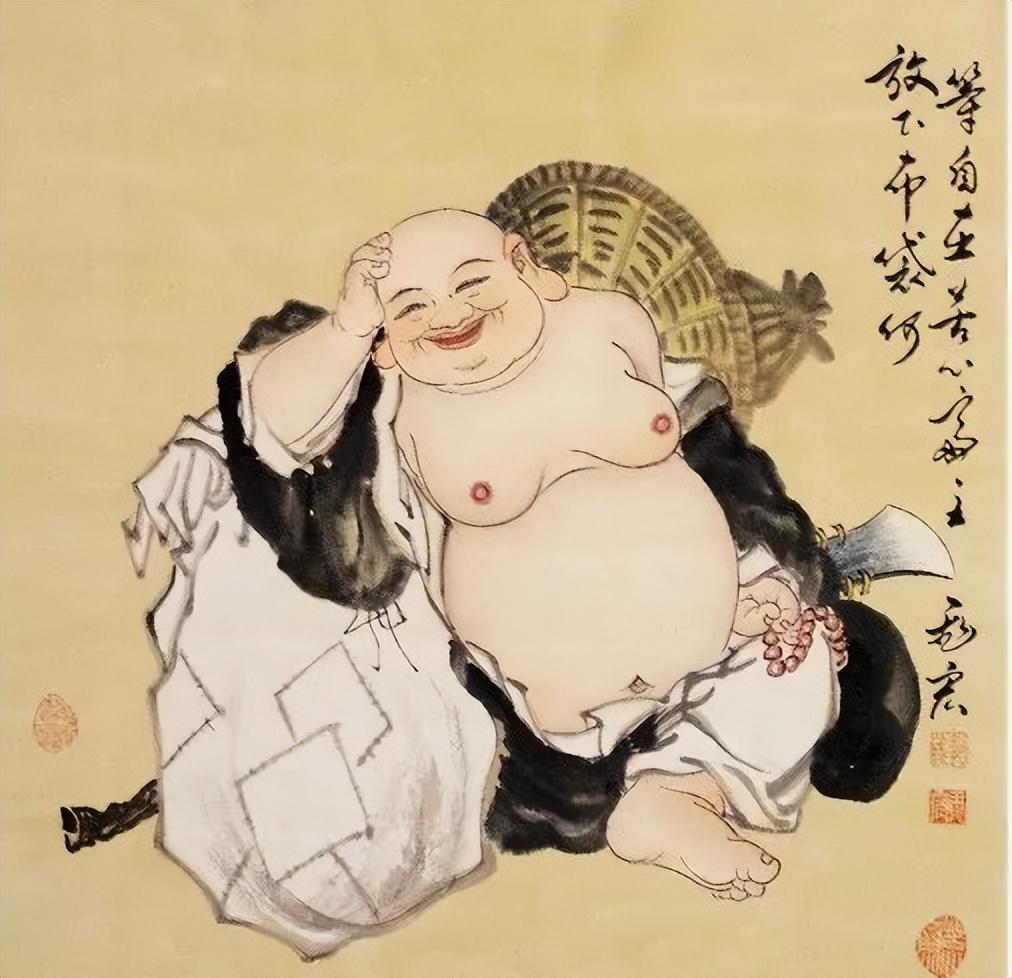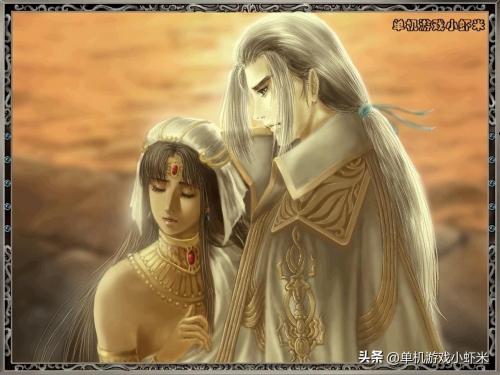翻译家朱生豪儿子
翻译家朱生豪儿子
《哈姆雷特》的中文译本中,比较受推崇的有卞之琳译本、梁实秋译本、 朱生豪译本。 近百年来,中国已有多达近二十个不同译本的《哈姆雷特》,诸如邵挺、梁实秋、田汉、曹未风、朱生豪、孙大雨、卞之琳、方平、林同济,以及姜维枫、北塔等翻译家的汉译本。 在《哈姆雷特》几个有代表性的重要译本中,卞之琳的译本几乎是出现得最迟的,却是最被称道的“精品译作”。卞译《哈姆雷特》初版于1956年的人民文学出版社,在他晚年编校定稿的三卷本《卞之琳译文集》(2000年安徽教育出版社)中,他把译名最后确定为《丹麦王子哈姆雷特悲剧》。作为著名的诗人与文学翻译家,卞译《哈姆雷特》的优长,主要是吸取了此前各家译本的长处,用他自己的话说:“曾参考曹未风、朱生豪译本(及其吴兴华校本),加工中发现个别不谋而合处,未加更动,个别受启发处,已另行改进,即使晚近才出版的林同济译本,也在新近校订中用以鉴照。”可谓集思广益。此外,卞译还按照莎剧的原样,剧词有诗体与散文体的区别,而不像别的一些译本几乎全是散文化的。 梁实秋翻译的莎剧,每个剧本的前面都有《序言》,分别概述该剧的故事来源、著作年代、版本历史与舞台历史,以及译本所根据的版本等等,而且梁实秋还是唯一以一人之力完成了翻译《莎士比亚全集》全部作品的中国作家。莎剧中原文多有猥亵语,梁译做到“悉照译,以存其真” 。 朱生豪1936年春着手翻译《莎士比亚戏剧全集》。为便于中国读者阅读,打破了英国牛津版按写作年代编排的次序,而分为喜剧、悲剧、史剧、杂剧4类编排,自成体系。1941年日军进攻上海,辗转流徙,贫病交加,仍坚持翻译,先后译有莎剧31种,新中国成立前出版27种,部分散失,后因劳累过度患肺病早逝。他是中国翻译莎士比亚作品较早和最多的一人,译文质量和风格卓具特色,为国内外莎士比亚研究者所公认。
翻译家朱生豪翻译理论
一、朱生豪之翻译思想
Zhu Shenghao's View on Translation
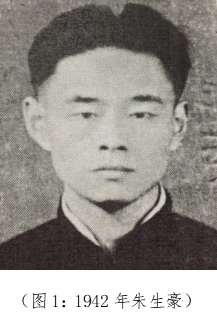
朱生豪翻译的莎士比亚戏剧,风格独特,形神兼备,堪称划时代的经典之作。其翻译理念的核心是“神韵说”,其实质不仅仅是音律的调和,还是涌动的生命力,是求形与求神之间巨大矛盾所激发的张力与诗意,是一种由内而外,诗意通达先于字词对应的翻译思想。
Zhu Shenghao's translation of Shakespeare's plays has a unique style and is a combination of form and spirit, which can be called an epoch-making classic. The core of his translation view is "The Theory of Romantic Charm", whose essence is not only the harmony of tone and rhythm, but also the surging vitality. Romantic charm is the tension and poetic quality inspired by the huge contradiction between seeking form and seeking spirit. "Theory of Romantic Charm" is a kind of translation thought which puts poetic quality and spirit prior to the corresponding words.
1.“神韵说”的由来
“神韵”是中国古代美学范畴,一种含蓄蕴藉、冲淡清远的艺术风格和理想境界。在文学艺术中,“神韵”追求委曲含蓄、耐人寻味的境界,以此来抒写主体审美体验,使人能获得古人常说的言外之意、象外之象、意味无穷的美感。“神韵说”强调作家的悟性和创作灵感,强调作家的学识、学养、悟性、灵感结合后达到最高创作境界。“神韵说”强调创造与悟性的结合,这与对译者的要求是异曲同工的。
The origin of "The Theory of Romantic Charm"
"Romantic charm" falls into the category of ancient Chinese aesthetics, which refers to an implicit, elegant and simple artistic style and ideal realm. In literature and art, "romantic charm" pursues the implicative and intriguing state, so as to express the aesthetic experience of the subject, so that people can get the aesthetic perception of meanings beyond words, images outside images and therefore the infinite meanings. "The Theory of Romantic Charm " emphasizes the integration of writer's comprehension, inspiration, knowledge and cultivation to reach the highest creative level. It also emphasizes the combination of creation and perception, which is the same as the requirement of translators.
中国传统译论的诞生和发展与古典文艺美学有着千丝万缕的联系,传统译论与美学一脉相传,译论从文艺美学中吸取了思想,借鉴了方法。中国传统译论如“文质说”“信达雅说”“信顺说”“神似说”“化境说”往往以哲学、美学等为其理论基础。
The birth and development of Chinese traditional translation theory is inextricably linked with classical aesthetics of literature and art. Traditional translation theory and aesthetics can be traced to the same origin. Translation theory draws ideas and methods from classical literary aesthetics, for example, "theory of literary quality", "theory of faithfulness, expressiveness and elegance", "theory of faithfulness", "theory of divine resemblance" and "theory of transformation" are often based on philosophy and aesthetics.
在中国传统译论中,“神韵说”最早是由茅盾引入翻译领域的。1921年,茅盾在其《译文学书方法的讨论》中指出:“直译的时候常常因为中西文字不同的缘故,发生最大的困难,就是原作的‘形貌’与‘神韵’不能同时保留。有时译者多加注意于原作的神韵,便往往不能和原作有一模一样的形貌;多注意了形貌的相似,便又往往减少原作的神韵”。这里,茅盾提出了具有中国特色的文学翻译批评主张——“神韵”与“形貌”相结合的辩证统一批评理论。这是迄今所知中国译论史上最早又最明确的强调“神韵”这一重要观点的。
In traditional Chinese translation theory, "The Theory of Romantic Charm" was first introduced into the field of translation by Mao Dun. In 1921, Mao Dun pointed out in his “Discussion on the Method of Translating Literary Works” that "when translating directly, the biggest difficulty often occurs because of the difference between Chinese and Western languages, that is, the form and romantic charm of the original cannot be retained at the same time. Sometimes, if the translator pays more attention to the romantic charm of the original, he will not have the same form as the original; if he pays more attention to the form, he can not fully express the romantic charm of the original. " Here, Mao Dun puts forward the idea of literary translation criticism with Chinese characteristics, that is, the dialectical unity of "romantic charm" and "form", which is the earliest and clearest point of view in the history of Chinese translation theory that emphasizes "romantic charm".
2.“神韵说”下的朱生豪翻译思想
在那些战乱的特殊岁月里,朱生豪虽然为我们译出了精妙绝伦的莎士比亚剧作,但由于他英年早逝,再加上一生只勤于翻译,极少写译论文字,除了在给爱人宋清如写的书信中偶尔涉及翻译的零星议论外,并没有给世人留下多少翻译理论方面的东西。只在他1944年写的《莎士比亚戏剧全集·译者自序》里较清楚地说明了他的翻译见解:
Zhu Shenghao's Translation Thought under "The Theory of Romantic Charm"
In those special years of war, although Zhu Shenghao translated excellent Shakespeare’s plays for us, he died young and devoted his whole life to translation and rarely wrote about translation theories. Apart from the occasional comments on translation in his letters to his wife, Song Qingru, he did not leave much translation theory to the world. Only in "The Complete Works of Shakespeare's Plays: Translator's Preface" written in 1944 can his translation opinions be clearly traced:
余译此书之宗旨,第一在求于最大可能之范围内,保持原作之神韵,必不得已而求其次,亦必以明白晓畅之字句,忠实传达原文之意趣;而于逐字逐句对照式之硬译,则未敢赞同。凡遇原文中与中国语法不合之处,往往再四咀嚼,不惜全部更易原文之结构,务使作者之命意豁然呈露,不为晦涩之字句所掩蔽。每译一段竟,必先自拟为读者,察阅译文中有无暧昧不明之处。又必自拟为舞台上之演员,审辨语调之是否顺口,音节之是否调和,一字一句之未惬,往往苦思累日。
The principle of my translation work is, first, to maintain the romantic charm of the original work to the greatest extent possible, and second, to faithfully convey the meaning of the original text with clear words and sentences, while I do not appreciate the literal translation word for word. In case of any discrepancy between the original text and the Chinese grammar, I often think over again and again to fully convey the author's meaning, not be blocked by obscure words and sentences, even at the expense of the structure of the original text. For each paragraph I translated, I must read it as a reader and check whether there is ambiguity in the translation. I must also consider myself as an actor on the stage to judge whether the tone is smooth or not, whether the rhythms are harmonious or not, and I often think hard about an appropriate word and sentence for days.
从这段叙述中,我们可以分析出朱生豪关于文学翻译的见解,即翻译标准——于最大可能之范围内,保持原作之神韵;翻译方法——主张意译,反对逐字逐句对照式硬译;翻译批评观——必先自拟为读者,又必自拟为舞台上之演员,重视读者反应论。这就是他的翻译思想之精髓,在莎剧的整个翻译过程中指导着他的翻译,被后人冠以“神韵说”。
From this narration, we can see Zhu Shenghao's views on literary translation, that is, the translation standard -- To maintain the romantic charm of the original work to the greatest extent possible; the translation method -- He advocates free translation, and opposes the word for word translation; the translation criticism -- A translator must check his translation as a reader and an actor, and pay attention to the reader response theory. This is the essence of his translation thought, which guided his entire translation of Shakespeare’s plays, and is called "The Theory of Romantic Charm" by later generations.
“神韵说”是朱生豪从翻译的角度以中国传统文论来阐发外国作品的较早尝试,应源于朱生豪深厚的中国古典文学的功底。他以准确简洁的语言高度概括了文学翻译中的文本语言、风格以及意蕴等深层的内涵。因为翻译,特别是文学翻译的标准应该是追求译文与原文在“神韵”上的契合,译者不仅要努力将原文的意思和思想译出,还要尽最大可能保存原作的“意趣”和“神韵”。莎剧并非纯诗体,而是以素体诗为核心,各种文体皆有的混合载体。在翻译中,朱生豪充分显示了诗人的气质和诗人运用语言构炼诗句的天才灵气,他没有拘泥于莎剧的文体,而是大胆地使用了诗化散文体与口语散文体夹杂来翻译原文的素体诗与散文。他虽采用散文体,但却处处流露出诗情,以诗意美征服了莎翁戏剧那无韵诗体的独特美,完美地再现了莎翁原作的整体风貌和内在的神韵。例如《无事生非》中克劳狄奥公爵祭奠希罗的这首祭诗:
"The Theory of Romantic Charm" is Zhu Shenghao's early attempt to expound foreign works from the perspective of Chinese traditional literary theory, which stems from Zhu Shenghao's proficient master of Chinese classical literature. He highly generalizes the deep connotation of text language, style and implication in literary translation with accurate and concise language. Because the standard of translation, especially literary translation, should be to pursue the correspondence between the translation and the original in "romantic charm", the translator should not only try to translate the meaning and thoughts of the original, but also try to preserve the "artistic taste" and "romantic charm" of the original as much as possible. Shakespearean plays, mainly written in the form of blank verse, are a mixture of all kinds of styles. In translation, Zhu Shenghao fully showed a poet's temperament and his talent in constructing poems. He was not confined to the style of Shakespeare’s works, but boldly used poetic prose and colloquial prose to translate the original blank verse. Although he used prose style, he showed his poetic quality everywhere. He conquered the unique beauty of Shakespeare's drama with poetic beauty, and perfectly reproduced the overall style and internal verve of Shakespeare's original works. For instance a poem by Claudio to commemorate Hero in “Much Ado about Nothing”,
Song
Pardon, goddess of the night,
Those that slew thy virgin knight;
For the which, with songs of woe,
Round about her tomb they go.
Midnight, assist our moan;
Help us to sigh and groan,
Heavily, heavily;
Graves, yawn, and yield your dead,
Till death be uttered,
Heavily, heavily.
歌
唯兰蕙之幽姿兮,
遽一朝而摧焚;
风去佛郁其变色兮,
月姊掩脸而似嗔;
语月姊兮毋嗔,
听长歌兮当哭;
绕墓门而逡巡兮,
岂有身之可赎!
风瑟瑟兮去漫漫,
纷助予之悲叹;
安得起重泉之折骨兮,
及长夜之未旦!
对这一节的翻译,朱生豪创造性地使用了“骚体”。“骚体”是以屈原的《离骚》为代表的,中国古典文学体裁的一种重要形式。这类作品往往充满着抒怀和烂漫的味道,形式不受约束,篇章长度相对较长,一般用“兮”字来增强语势。“骚体”之美在于一个“真”字,是人物内心世界喜怒哀乐的真切流露。
In the translation of this section, Zhu Shenghao creatively used the Sao style, which is an important form of Chinese classical literature, represented by Qu Yuan's “Li Sao”. This kind of works are generally full of lyrical and romantic flavor, with unrestricted forms and relatively long chapter length, and the character "Xi" is often used to enhance the language power. The beauty of the Sao style lies in "truth", which is the true expression of the happiness, anger and sadness of the characters.
朱生豪能以情志为本,起用“骚体”译出,语言饱含深情,感情自然宣泄,不但形式独特,而且恰到好处。此译文中,朱生豪以其深厚的文学造诣和语言功底,将《离骚》中“兰”和“蕙”的意象嫁接过来,使用“骚体”将克劳狄奥公爵悲痛欲绝,那种望穿秋水也永远见不到对方,心中哀伤万分的悲痛和幽怨的情愁淋漓尽致地表达了出来。全诗明暗呼应,相得益彰,形成一种触景生情、情文并茂的意境,从而创造性地传递了原文的情志和神韵,取得了绝佳的审美效果。
Zhu Shenghao took emotion underlying in this poem as the basis and translated it with the Sao style. His translation, which is not only unique in form, but also just right, is full of deep feelings and the emotion is naturally expressed. Due to his profound literary attainments and proficient language skills, Zhu Shenghao transplanted the images of "Lan" and "Hui" from“Li Sao” and used the Sao style to express vividly Claudio’s grief and bitterness. With the explicit and implicit meaning complements each other, the whole poem, excellent in both form and spirit, expresses feelings through the images and scenes, thus creatively conveys the emotion and verve of the original text, and achieves a perfect aesthetic effect.
“神韵说”思想凝聚了朱生豪丰富的翻译实践经验,是朱氏翻译思想的核心和精华。“神韵说”论与后来傅雷所提出的“神似”和钱钟书的“化境”是殊途同归,都丰富了我国的翻译理论,对我国翻译理论的发展产生了深远的影响。在这个意义上,朱生豪对翻译理论话语的流动起了重要作用,他的翻译思想对中国传统译论的形成起到了承上启下的枢纽作用。
"The Theory of Romantic Charm" embodies Zhu Shenghao's rich experience in translation practice, and is the core and essence of Zhu's translation thought. The theory of "romantic charm" is similar with Fu Lei's later theory of "verve" and Qian Zhongshu's theory of "transformation", which all have a profound impact on the development of China’s translation theory. In this sense, Zhu Shenghao plays an important role in the flow of translation theory discourse, and his translation thought plays a pivotal role in the formation of traditional Chinese translation theory.
二、朱生豪之译界楷模
Zhu Shenghao, a Model of Translation
1935年春,朱生豪得前辈同事詹文浒之鼓励,始着手尝试翻译莎士比亚全集。詹文浒的建议不仅考虑到朱生豪对莎剧的热爱,也是对他才华和能力的信任,同时也解决了他生活上的困境。所以,他当时写信给宋清如就异常兴奋,决心以翻译莎士比亚全集作为献给宋清如的珍贵礼物,字里行间都流露出喜悦。后来,听说日本人讥笑中国落后到连莎士比亚译本都没有,就更激励了他翻译的决心。
In the spring of 1935, Zhu Shenghao was encouraged by his colleague Zhan Wenhu to began to translate the complete works of Shakespeare. Trusted in his talent and ability, Zhan Wenhu did not only take into consideration Zhu Shenghao's love for Shakespeare’s plays, but also helped him support his life. Therefore, he was very glad and excited and decided to translate the complete works of Shakespeare as a precious gift to Song Qingru, his lover. Later, he heard that the Japanese ridiculed that China was so backward that even didn’t have Shakespeare's translation in Chinese, which further strengthened his determination in translation.
为做好译莎准备,从1935年春开始,朱生豪花了整整一年时间搜集莎剧的各种版本,诸家注释本以及有关莎学的资料,比较研究这些资料的优劣得失。只要能买到或借到的,他都饱览无余,不惜工本。同时,他还着手研究表演艺术,无论电影还是话剧,只要较为出名的,他都加以品评比较,欣赏思考。对英文莎士比亚全集更是反复吟诵,仔细推敲,简直到了如痴如醉的程度。对他来说,“译莎剧的工作,无论胜不胜任,都将非尽力做好不可了”。
In order to prepare for the translation, Zhu Shenghao spent a whole year to collect various versions of Shakespeare's plays, notes and materials related to Shakespeare, and to compare the merits and demerits of these materials. As long as he can buy or borrow, he spared neither labor nor money. At the same time, he also began to study the performing arts. No matter it was a movie or a drama, as long as it was famous, he would comment, compare, appreciate and think about it. The complete works of Shakespeare in English were recited repeatedly and carefully with infatuation. For him, "whether you are competent or not, you will have to do your best to translate Shakespeare’s plays.".
他最喜爱的莎士比亚剧本是《暴风雨》和《仲夏夜之梦》,所以选择《暴风雨》作为译莎的第一个剧本,并给自己制定了两年译完37个莎剧200多万字的计划。具体打算是:先译出《暴风雨》《仲夏夜之梦》《威尼斯商人》《温莎的风流娘儿们》《无事烦恼》《皆大欢喜》《第十二夜》《辛白林》《冬天的故事》9部喜剧,作为第一分册;然后把《哈姆雷特》《奥赛罗》《李尔王》《麦克白》四大悲剧和《罗密欧与朱丽叶》《恺撒》《女王殉爱记》《英雄叛国记》8部悲剧为第二分册;10部英国史剧为第三分册;再将另外的7种次要的作品归入第四分册。
His favorite Shakespeare’s plays are “The Tempest” and “A Midsummer Night's Dream”, so he chose “The Tempest” as his first script, and made a plan to translate 37 Shakespeare’s plays, a total of more than 2 million words in two years. The specific plan was to translate nine comedies, namely, “The Tempest”, “A Midsummer Night's Dream”, “The Merchant of Venice”, “The Merry Wives of Windsor”, “Much Ado About Nothing”, “As You Like It”, “Twelfth Night”, “Cymbeline” and “The Winter’s Tale”, as the first volume. Then the tragedies, that is, “Hamlet”, “Othello”, “King Lear” and “Macbeth”, “Romeo and Juliet”, “Caesar”, “Antony and Cleopatra” and “Coriolanus” were divided into the second volume. Ten British historical plays were in the third volume, and seven other minor works were included in the fourth volume.
为了完成译莎的任务,他全面地考虑了莎剧译文的体裁。他认为,莎剧译文首先要雅俗共赏,通俗易懂,还要便于在舞台上演出。但是,那么浩大的工程全部用诗体译出,是难以想象的。所以,他最后决定采用白话散文,也就是散文诗的形式。为了译好莎剧,朱生豪还对舞台剧和电影进行了研究,甚至中外戏剧和语境的不同,中国戏院的特色,都作了实地考察。朱生豪的翻译不只是将原文思想译出,还要在最大可能的范围内保持原作之神韵。为了能使译文搬上舞台,每译一段都自拟为读者,查阅有无暧昧不明之处,又要自拟为演员,以审辩语句是否顺畅,音节是否和谐。朱生豪常常会与剧中人物一起哭,一起笑,再三咀嚼原作之精神,直到形神兼备,以求确切传达原作风格。
In order to complete the task of translating Shakespeare’s plays, he comprehensively considered what genre should be used in the translation. In his opinion, the translation of Shakespeare's plays should be first of all elegant and popular, easy to understand and easy to perform on the stage. However, it is unimaginable that such a large number of works can be translated in poetic style. Therefore, he finally decided to adopt the form of vernacular prose, that is, prose poem. In order to translate Shakespeare's plays, Zhu Shenghao also made a research on stage plays and films, and even made a field investigation on the differences between Chinese and foreign plays and contexts, as well as the characteristics of Chinese theaters. Zhu Shenghao's translation is not only to convey the original ideas, but also to maintain the romantic charm of the original text to the greatest extent possible. In order to make the translation suitable for performance on the stage, he must read it as a reader and check whether there was ambiguity in the translation. He must also consider himself as an actor on the stage to judge whether the tone was smooth or not, whether the rhythms were harmonious or not. Zhu Shenghao often cried and laughed with the characters in the play, and mulled over the spirit of the original work again and again until his translation got both form and spirit, so as to convey the original style exactly.
朱生豪被中国翻译家、莎学家公认为译界楷模,不仅是因为他译莎态度的严肃认真,译文的流畅精妙,还因为他以惊人的毅力和顽强的意志,克服种种艰难险阻,在不到十年的时间内,译出莎剧三十一个半。
Zhu Shenghao is recognized as a model in the field of translation by Chinese translators and Shakespearean scholars, not only because of his serious attitude towards Shakespearean translation, the fluency and subtlety of his translation, but also because of his amazing perseverance and strong will to overcome all kinds of difficulties and obstacles. In less than ten years, he translated thirty-one and a half Shakespeare’s plays.
1936年8月,朱生豪的第一部译作《暴风雨》第一稿完成。《暴风雨》的翻译一炮打响,使他信心倍增。接着一气呵成,在其后不到一年的时间里,陆续译出《仲夏夜之梦》《威尼斯商人》《第十二夜》等六七部喜剧,按照这个进度,再用两年译完全剧是不难实现的。
In August 1936, Zhu's first translation of “The Tempest” was completed, which greatly boosted his confidence. Then, in less than a year, six or seven comedies such as “A Midsummer Night's Dream”, “The Merchant of Venice” and “Twelfth Night” were translated successively. According to this schedule, it was not difficult to translate the complete works of Shakespeare in another two years.
但是事与愿违,1937年8月13日,日军在上海发动“八一三”事变,朱生豪的全部译稿焚于战火,开始了流离失所的逃亡生活,翻译莎剧一度中断。在上海沦为“孤岛”期间,朱生豪辞去了世界书局之职,到《中美日报》任编辑,在从事编辑工作的两年多时间里,他还利用业余时间译莎。
However, on August 13, 1937, the Japanese army launched the "August 13 Incident" in Shanghai. Zhu Shenghao's entire translation was burned in the flames of war, and he began to drift around, and the translation work was stopped for a time. During his stay in Shanghai, Zhu Shenghao resigned from the World Book Company and worked as an editor of China-US Daily, which lasted for more than two years, and he spent all his spare time translating Shakespeare’s works.
1941年12月,太平洋战争爆发后,日军占领上海租界,冲入《中美日报》报社。朱生豪虽逃得一命,但图书资料和他近四年颠沛流离中所补译的莎剧均遭厄运。之后,他成了失业者,生活陷入困境。然而,这一切并没有压垮朱生豪。他曾豪迈地宣称“饭可以不吃,莎剧不能不译”。
In December 1941, after the outbreak of the Pacific War, the Japanese occupied the Shanghai international settlement and destroyed the China-US Daily. Although Zhu Shenghao escaped, his books, materials and the Shakespeare’s plays which he had translated in the past four years were lost. After that, he became unemployed and his life was in trouble. However, all this did not crush Zhu Shenghao. He once declared with pride that "I can do without food, but I can’t do without translating Shakespeare’s plays.”.
虽然生计维艰,手头资料只有莎剧全集和两本词典(牛津词典和英汉四用词典),然而朱生豪仍然以极快的速度完成了莎士比亚悲剧的翻译。朱生豪译莎进度虽然惊人,但当时唯一的稿费收入和生活条件,根本不足以补充他巨大的脑力消耗。他本来就虚弱的身体更加消瘦,妻子劝他休息,出去走走,但他舍不得花去一刻宝贵的翻译时间。
Although his life was difficult, Zhu Shenghao has translated Shakespeare's tragedies with great speed with only the complete works of Shakespeare's plays, and two dictionaries (Oxford Dictionary and A Daily Use English-Chinese Dictionary). Zhu Shenghao's translation made great progress, but the low income and poor living conditions could not provide him enough food to supplement his huge brain consumption. He was in a poor heath and his wife advised him to rest and go out for a walk, but he was reluctant to waste precious time for a moment.
1943年1月,朱生豪携妻子回到了嘉兴,住进了东米棚下的朱氏老宅。条件简陋,物质生活匮乏,连油灯也要省着用。朱生豪黎明即起,一直工作到夜幕降临,直到难以识别字迹,两眼模糊时才不得不停笔。朱生豪以极快的速度完成了莎剧的大部分翻译。在一年中,朱生豪译出了莎士比亚悲剧8部,完成了全集的第二辑。
In January 1943, Zhu Shenghao and his wife returned to Jiaxing and lived in Zhu's old house in Dongmipeng with poor conditions and severe material shortage. To save money, the oil lamp should also be saved, so Zhu Shenghao started at dawn and worked until nightfall until he couldn't recognize the handwriting. In one year, Zhu Shenghao translated 8 Shakespearean tragedies and completed the second episode. He finished most of the translation with great speed.
沉重的负担,艰苦的工作,摧毁了朱生豪的健康。他常患牙痛、腹痛,限于经济条件,不肯就医。最后几部悲剧和一部分史剧是在半病中译完的。到了1944年,他的身体状况与日俱下,但他依然埋头伏案,又译完了杂剧10部,其后又译出了历史剧4部。
The heavy burden and hard work destroyed Zhu Shenghao's health. He often suffers from toothache and abdominal pain. Limited by economic conditions, he refused to see a doctor. He translated the last few tragedies and some historical plays in poor health. By 1944, his health became worse and worse, but he was still buried in his work, translating 10 dramas and then 4 historical dramas.
1944年11月底,朱生豪病情愈益加重,卧床不起。12月6日中午,时年32岁的文坛翻译巨星朱生豪与世长辞。他一心不能释怀的,除了妻儿,就是十年来为之拼搏的伟大“工程”。他对妻子清如说:“早知一病不起,就是拼着命也要把它译完”。
At the end of November 1944, Zhu Shenghao’s health was getting even worse and he had to stay in bed. On December 6 1944, Zhu Shenghao, the 32-year old literary translation superstar, died. What he couldn't let go, except his wife and son, was the great "project" for which he had worked hard for ten years. He said to his wife, Song Qingru, "If I had known that I would fall ill and die, I would have finished translating it even if at the risk of my life.".
在内忧外患、生活困窘、资料奇缺的条件下,朱生豪以一人之力谱写出一曲译莎的神话,为现代中国的文学翻译事业留下了辉煌的一笔。他坚毅的品格,译莎的执着,永远震撼着我们的心灵。中国戏剧大师曹禺评价朱生豪:“一生为莎士比亚译作,功绩奇绝,且身前贫苦,不屈不挠,终于完成大业,实深敬佩”。
Under domestic trouble and foreign invasion, with poor life and severe shortage of reference materials, Zhu Shenghao translated most of Shakespeare’s works with his own strength, which made great contribution to the literary translation of modern China. His persistence and perseverance always impressed us. Cao Yu, a great Chinese dramatist, commented on Zhu Shenghao, "He devoted all his life to the translation of Shakespeare’s plays with outstanding achievements, and with indomitable will, he finally completed his great career in poverty, which really worth admiring."
浙江省社科联社科普及课题成果
课题编号:20KPW02M
课题名称:南湖畔的翻译家、诗人--朱生豪(中英双语)
负责人:郑晓明
工作单位:嘉兴学院


